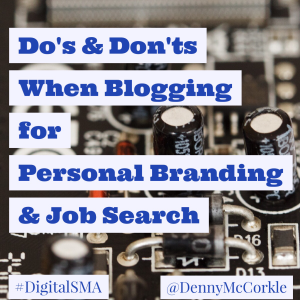Do you really understand the products you sell? Surprisingly, many business owners get into a business because they believe that there’s money in it, not necessarily because they’re truly passionate about the product. Unfortunately, this kind of attitude is common in the coffee shop business, for example, as well as many types of retail businesses like restaurants. But, it doesn’t have to be this way. If you truly want to boost your products, develop a passion for them.
Know The Basics
It should go without saying that one of the first things you need to do when starting a business is to understand the basics of your products and services. Every good tutorial on how to start a retail business covers this. If you’re currently “shooting from the hip,” go find yourself a good guide and start studying.
Product guides don’t have to be complex. Often, they’re written for the consumer, so they’re easy to read. They will give you the basic idea of the product, what problems it solves, possibly pricing for the product, and key features.
What you’re after is this information, and more. The product brochure for the products you’re selling should be readily available for all employees too. No one should be “ummmm”ing when a customer asks how something works, what it’s used for, and pricing and options.
Beyond the basics, you’ll also want to know a basic or general history of the product, why it came into being, and who typically buys these products and why. Finally, understanding demographics for your product will help you put together effective marketing plans.
Know Your Competition And Customer Alternatives
Of course, when you’re starting a new business, or even if you’ve been around for a little while, it’s not enough to know your own products. You also have to know your competition. They’re out there, and they’re more than willing to take your customers away from you.
If you don’t know what other options or alternatives to you that your customers have, you’re at a severe strategic disadvantage. For starters, you could have a vastly inferior product or be selling an outdated model and not realize it. You could also be missing trends that other retailers have picked up on before you.
Obviously, it’s better to be a leader than a follower, but that’s not always possible. And, when you’re new in business, it’s all but impossible. There are leaders already in your industry. Ignore them at your peril.
The specific things you want to know about your competition include its products’ strengths and weaknesses. It may also help to know how the products are constructed and their history.
Why Should People Shop With You?
Even when your competition is no serious threat, it doesn’t mean that customers will buy from you. You have to give them a reason (positive reasons) why they should buy from you or take action. The alternatives aren’t simply “buy from me or my competition.” The customer may opt to not buy anything or devise a different solution to whatever problem he’s having.
As an example, suppose you run a paint store. Your customer may come in thinking about painting his home. But, of course, it all depends on the cost of paint. Your competition sells a wide range of paints and offers manufacturer’s discounts.
You’re a new paint store, you’ve done some basic market research, and you know the price points where sales occur in your community. At the same time, you know your competition’s products are of lower quality and you have to sell your product at a higher price to make up for that quality and the higher cost of the raw ingredients (e.g. the tints and stabilizers).
But, assuming your competition has a bad reputation, or your customer simply isn’t interested in a low-quality solution, you still have to contend with the fact that your customer could opt to put vinyl siding on his house or just do nothing this year and wait until next year to make a decision.
You have to be ready to offer positive benefits as to why the customer should buy your paint and buy it right now.
Stress Benefits, Not Features
Most new business owners get caught up in features. They believe a long list of features helps make their products, and by extension their business, look legitimate. It’s an understandable mistake. New businesses don’t have the clout of older, more established businesses.
However, customers will buy from new businesses and they typically buy based on benefits to them, not features of a product. In other words, a customer walks into a hardware store and buys a drill not because of its features (i.e. a full drill bit set, a warranty, etc.) but because of its benefits (e.g. it will drill a hole that the customer needs for some project). Sell “the hole,” not the drill.
Business & Finance Articles on Business 2 Community
(342)





